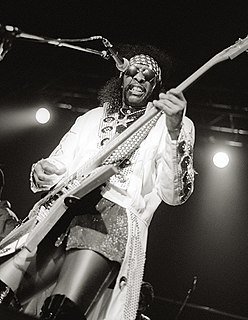A Quote by W. H. Auden
One demands two things of a poem. Firstly, it must be a well-made verbal object that does honor to the language in which it is written. Secondly, it must say something significant about a reality common to us all, but perceived from a unique perspective. What the poet says has never been said before, but, once he has said it, his readers recognize its validity for themselves.
Related Quotes
Two opposing forces inhabit the poem: one of elevation or up-rooting, which pulls the word from the language: the other of gravity, which makes it return. The poem is an original and unique creation, but it is also reading and recitation: participation. The poet creates it; the people, by recitation, re-create it. Poet and reader are two moments of a single reality.
Men are anxious to improve their circumstances, but are unwilling to improve themselves; they therefore remain bound. The man who does not shrink from self-crucifixion can never fail to accomplish the object upon which his heart is set. This is true of earthly as of heavenly things. Even the man whose object is to acquire wealth must be prepared to make great personal sacrifices before he can accomplish his object; and how much more so he who would realize a strong and well-poised life.
I am not sure, once a poet has found out what has been written already, and how it was written - once, in short, he has learnt his trade - that he should bother with literature at all. Poetry is not like surgery, a technique that can be copied. Every operation the poet performs is unique, and need never be done again.
One of the things I love about translation is it obliterates the self. When I'm trying to figure out what Tu Fu has to say, I have to kind of impersonate Tu Fu. I have to take on, if you will, his voice and his skin in English, and I have to try to get as deeply into the poem as possible. I'm not trying to make an equivalent poem in English, which can't be done because our language can't accommodate the kind of metaphors within metaphors the Chinese written language can, and often does, contain.
A successful poem says what a poet wants to say, and more, with particular finality. The remarks he makes about his poems are incidental when the poem is good, or embarrassing or absurd when it is bad and he is not permitted to say how the good poem is good, and may never know how the bad poem is bad. It is better to write about other people's poetry.
Throw away my book: you must understand that it represents only one of a thousand attitudes. You must find your own. If someone else could have done something as well as you, don’t do it. If someone else could have said something as well as you, don’t say it—or written something as well as you, don’t write it. Grow fond only of that which you can find nowhere but in yourself, and create out of yourself, impatiently or patiently, ah! that most irreplaceable of beings.
We must see the face of the Lord .... There are things that God says to me that I know must take place. It doesn't matter what people say. I have been face to face with some of the most trying moments of men's lives when it meant so much to me if I kept the vision, and if I held fast to that which God had said. A man must be in an immovable condition. The voice of God must mean to him more than what he sees, feels, or what people say.
Honor thy Father and thy Mother was once said, but then someone said: What if I don't know your Father? A still voice said: Does that makes him the devil? He is still someone's Father, his name has been changed, but his story is the same. Why hate when we should Celebrate. In this world of two's, you got the Mourning Son, and the Daughter of the Night. They both equal light once you make it through the night. Now, wake the funk up!
Truly fine poetry must be read aloud. A good poem does not allow itself to be read in a low voice or silently. If we can read it silently, it is not a valid poem: a poem demands pronunciation. Poetry always remembers that it was an oral art before it was a written art. It remembers that it was first song.






































